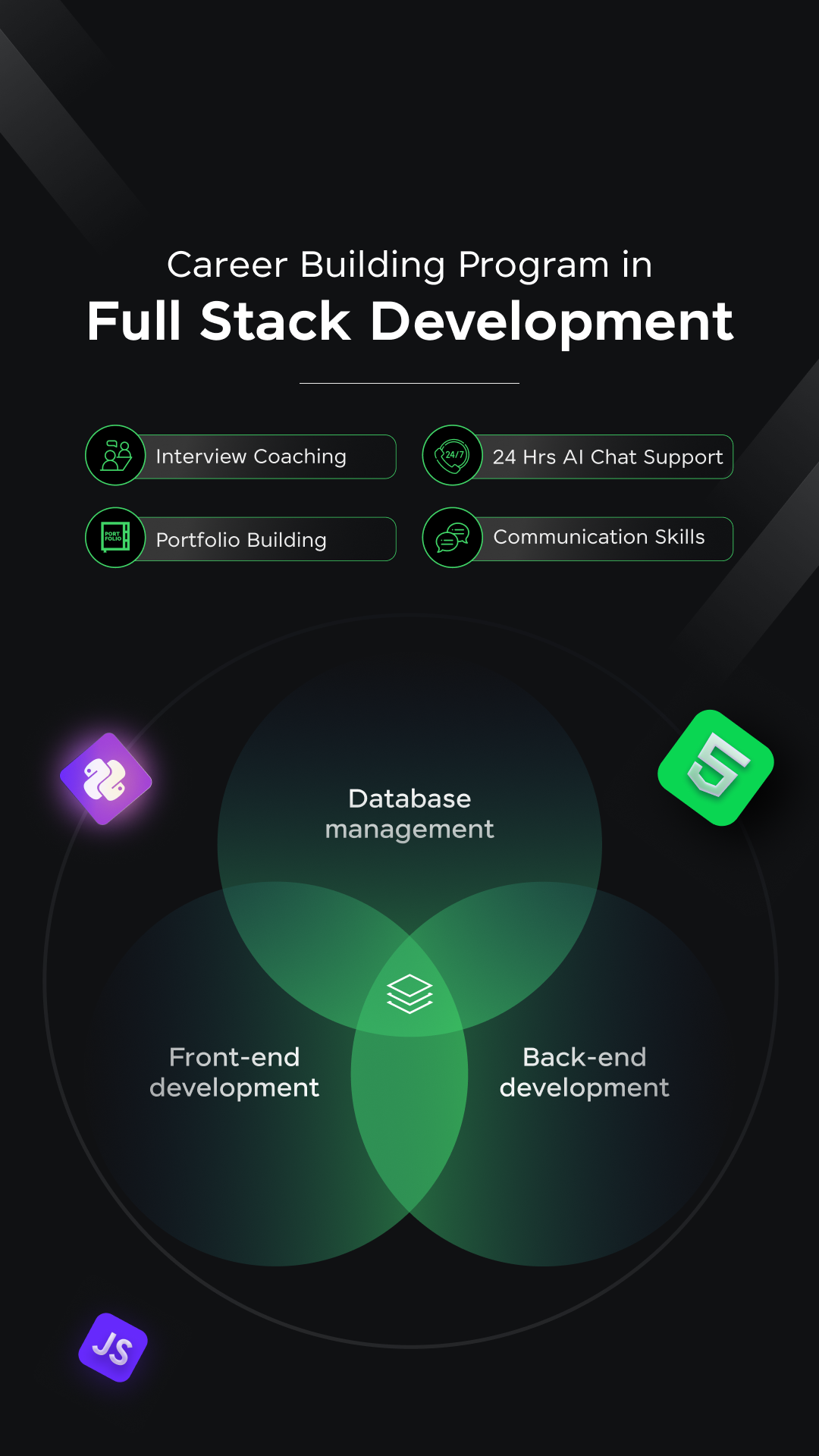![React vs Angular vs Vue: Choosing the Right Framework [2025] 1 Post thumbnail](https://www.guvi.in/blog/wp-content/uploads/2023/11/Feature-image-React-vs-Angular-vs-Vue-Choosing-the-Right-Framework-1.webp)
React vs Angular vs Vue: Choosing the Right Framework [2025]
Mar 06, 2025 4 Min Read 9843 Views
(Last Updated)
Choosing a web development framework is a critical decision for developers. With so many options available, it can be challenging to determine which framework is best suited for your project.
React, Angular, and Vue are three popular frameworks that often cause a dilemma among developers.
In this article, we will battle it out as React vs Angular vs Vue, so that you can make an informed decision for your next big project.
Table of contents
- React vs Angular vs Vue
- What is React?
- What is Angular?
- What is Vue?
- Key Differences Between React, Angular, and Vue
- 1) Language and Learning Curve
- 2) Size and Performance
- 3) Community and Ecosystem
- 4) Popular Websites and Companies
- Pros and Cons of React vs Angular vs Vue
- React
- Angular
- Vue
- Making the Right Choice
- Concluding Thoughts…
- Is Vue JS easier than Angular?
- Is Angular still in demand?
- Why choose Vue over Angular?
- Is Angular high-paying?
- Which is more demanding React or Angular?
React vs Angular vs Vue
What is React?
React is an open-source JavaScript library developed by Facebook in 2013. It is primarily used for building user interfaces based on reusable components.
React’s popularity stems from its ease of use, performance, and flexibility. React is considered one of the best frameworks for web development.
One notable advantage of React is its ability to create web as well as mobile applications using the same codebase as React Native.
Explore: ReactJS course
What is Angular?
Angular is a full-fledged web application framework based on TypeScript.
It was initially released by Google in 2016 as a successor to AngularJS.
Angular is widely used for creating single-page applications (SPAs) and offers a comprehensive set of features for building complex front-end applications.
Explore: Angular Course
What is Vue?
Vue is an open-source progressive front-end framework that gained popularity for its simplicity and ease of learning.
It was released in 2014 and was inspired by the best parts of Angular while addressing its limitations.
Vue focuses on beginner developers and allows them to create dynamic web applications without a steep learning curve.
Explore: Vue.js course
Before diving into the next section, ensure you’re solid on full-stack development essentials like front-end frameworks, back-end technologies, and database management. If you are looking for a detailed Full Stack Development career program, you can join GUVI’s Full Stack Development Career Program with placement assistance. You will be able to master the MERN stack (MongoDB, Express.js, React, Node.js) and build real-life projects.
Key Differences Between React, Angular, and Vue
To help you achieve your web development goals seamlessly, let’s discuss at length the key differences between React, Angular, and Vue. Let’s start the first phase of our React vs Angular vs Vue discussion:
1) Language and Learning Curve
React is based on JavaScript and uses JSX syntax, which combines JavaScript and HTML. It has a relatively easy learning curve, especially for developers who are familiar with HTML and JavaScript.
Angular, on the other hand, is based on TypeScript, a superset of JavaScript. Learning Angular requires developers to be skilled in TypeScript, which may require more effort.
Vue, similar to React, uses JavaScript and has a short learning curve, making it accessible to beginner developers.
2) Size and Performance
When it comes to size, React and Vue have a smaller footprint compared to Angular. This can be advantageous, especially for smaller applications where faster loading times are crucial.
React uses a virtual DOM, which enhances performance by minimizing the number of direct manipulations to the actual DOM.
Similarly, Vue also utilizes a virtual DOM, resulting in efficient rendering and improved performance.
Angular, being a full-fledged framework, has a larger size and may be more suitable for larger, complex applications.
This is perhaps the most important point in our React vs Angular vs Vue discussion.
3) Community and Ecosystem
The community and ecosystem surrounding a framework play a vital role in its adoption and support.
React has a large and active community, with extensive documentation, numerous libraries, and a thriving ecosystem.
Angular, backed by Google, also enjoys strong community support and a well-established ecosystem.
Vue, although smaller compared to React and Angular, has a dedicated and growing community, with a focus on simplicity and ease of use.
4) Popular Websites and Companies
React, Angular, and Vue are all used by many popular websites and companies. React is favored by companies like Netflix, Twitter, and Amazon.
Angular is widely used by PayPal, Samsung, and Upwork. Vue has been adopted by Alibaba, Grammarly, and GitLab.
The choice of framework often depends on the specific needs and preferences of the project and the company behind it.
Pros and Cons of React vs Angular vs Vue
Let’s discuss the advantages and disadvantages of each framework to further evaluate their suitability for your project.
React
Pros:
- Reusable Components: React’s component-based architecture enables developers to create reusable components, reducing complexity and enhancing code maintainability.
- Performance: React’s virtual DOM and efficient rendering mechanisms contribute to its excellent performance.
- Easy Learning Curve: React’s simplicity and extensive documentation make it accessible to developers of all skill levels.
Cons:
- Development Pace: React’s constant updates may require developers to adapt to newer concepts, which can slow down the development pace.
- Introduction to JSX: JSX, a syntax extension for JavaScript, may pose a learning curve for some developers.
Explore These Also: Top ReactJS Interview Questions and Answers Of 2025! [Part-1] & [Part-2]
Angular
Pros:
- Trustworthiness: Angular, backed by Google, instills trust among developers, ensuring long-term maintenance and support.
- Scalability: Angular’s architecture facilitates team collaboration and scalability, making it suitable for large-scale applications.
- Documentation: Angular’s detailed documentation provides comprehensive guidance for developers, including examples and explanations.
Cons:
- Learning Curve: Angular’s dependency on TypeScript may require additional effort to learn, compared to other frameworks.
- Size of the Project: Angular’s larger size may impact smaller applications, although it is less noticeable in larger projects.
Vue
Pros:
- Short Learning Curve: Vue’s simplicity and ease of learning make it an attractive choice, particularly for beginner developers.
- Project Size: Vue’s smaller size is advantageous for smaller applications, improving loading times and overall performance
- Community Support: Vue may have a narrower ecosystem, but it benefits from an active community that provides support and resources.
Cons:
- Ecosystem: Vue’s ecosystem may be limited compared to React and Angular, potentially affecting compatibility with older browsers and operating systems.
- Perception: Vue may not enjoy the same level of trust as React and Angular due to its association with smaller companies.
Making the Right Choice
Choosing the right web development framework from React vs Angular vs Vue ultimately depends on your specific requirements, team expertise, and project goals. React, Angular, and Vue are all powerful frameworks with their strengths and weaknesses as we’ve discussed at length in this article.
Consider factors such as the learning curve, project size, performance, community support, and the needs of your project before making a decision.
Regardless of the framework you choose, thorough testing is essential to ensure a seamless end-user experience. Testing should include cross-browser compatibility and mobile compatibility on a range of devices and browsers.
Also Read: Top 9 Web Development Tools
Kickstart your Full Stack Development journey by enrolling in GUVI’s Full Stack Development Career Program with placement assistance where you will master the MERN stack (MongoDB, Express.js, React, Node.js) and build interesting real-life projects. This program is crafted by our team of experts to help you upskill and assist you in placements.
Concluding Thoughts…
While concluding our React vs Angular vs Vue discussion, you should have realized that all three are powerful frameworks that cater to different needs and preferences.
By understanding their key differences, advantages, and disadvantages, you can make an informed decision and select the framework that best aligns with your project requirements. Remember to prioritize thorough testing to deliver a high-quality end product!
Vue JS is often considered easier to learn and use than Angular due to its simpler syntax and gradual learning curve.
Yes, Angular is still in high demand, widely used in enterprise applications, and continues to be a sought-after skill in the job market. So, worth your time!
Vue is known for its simplicity and flexibility, while Angular offers a more comprehensive framework with a strong architecture. To understand their strengths and weaknesses in-depth, read the article above.
Angular developers often command competitive salaries (starting from ₹7LPA), as the framework is widely used in enterprise-level applications, contributing to a higher demand for skilled Angular developers.
Both React and Angular are widely used in the industry, but the demand may vary based on specific project needs. React is often preferred for its flexibility, while Angular is chosen for its robust structure and features. Read more in the article above.






















![How to Become a Web Developer Without a Degree: A Beginner's Guide [2025] 2 web developer without a degree](https://www.guvi.in/blog/wp-content/uploads/2025/05/How-to-Become-a-Web-Developer-Without-a-Degree.png)

![What is ReactJS? A Beginner's Guide [2025] 4 what is reactjs](https://www.guvi.in/blog/wp-content/uploads/2025/04/What-is-ReactJS_-A-Beginners-Guide.png)





![Top 12 Best Web Development Projects for All Techies [With Source Code] 9 web development project](https://www.guvi.in/blog/wp-content/uploads/2023/08/Feature-Image.webp)

good article